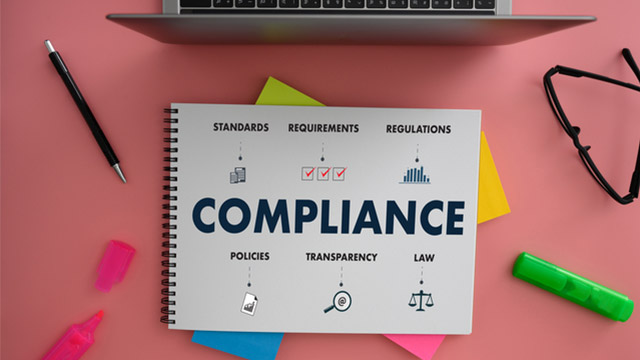2021.01.26
Three Important Reasons for Compliance Training and Effective Training Methods
Corporate scandals and compliance violations have become widely known not only through media reports but also through rapid dissemination on social media.
As a result, they can significantly impact corporate management, leading not only to deteriorating performance but also, in the worst case, to the risk of bankruptcy. Particularly, scandals require caution as they can spread more quickly and to a larger audience, sometimes with malicious exaggeration.
As a result, many companies are focusing on compliance training.
However, the scope of compliance has also expanded and changed over time.
As a result, issues have arisen such as not knowing what content should be taught and being unable to prepare materials for training. In addition to these, the COVID-19 pandemic has made group training difficult.
Here, we will introduce three important reasons for compliance training and the benefits of cost-effective e-learning for education.

1. What Compliance Means
Compliance means "legal compliance" in Japanese, but it is not enough to simply avoid direct violations of the law.
In addition to following laws, it encompasses a wide range of actions that do not violate ethical standards, social contributions, internal regulations, and operational manuals.
Specifically,
It also includes the prohibition of forced excessive labor and harassment against employees.
In addition, employees are
In other words, even if business activities are conducted within the bounds of the law, any actions that go against social justice or employ means that contradict ethical values are all violations of compliance.
2. Three Important Reasons Why Compliance Training is Essential
1. Changes in Compliance Values
Traditionally, compliance violations were rarely highlighted by the media or condemned by society unless they violated the law.
However, the standards of social justice and ethical values have significantly changed with the times, and their scope has broadened.
There is an increasing number of cases where both corporate executives and general employees unknowingly commit compliance violations.
Moreover, recently, anyone can easily share inappropriate videos or comments on social media, making it easy for such actions to become known outside the company.
Without implementing compliance training for all employees regarding the necessary precautions for a wide range of compliance violations, the risk of escalating into significant issues increases.
Relying solely on employees' voluntary morals is insufficient for risk avoidance.
It is important for the company to clearly define what actions are prohibited as compliance violations and for all employees to recognize and share this information.
2. Thorough compliance increases corporate value and reduces bankruptcy risk
Companies that have strong compliance are socially evaluated as sound businesses, which can enhance the brand value of the company.
Through compliance training, it is possible to prevent inappropriate behavior by all employees, or to detect and correct such situations early, thereby preventing or minimizing the impact on management.
Examples of compliance violations include,
This can lead to liability for damages, as well as risks of administrative penalties or criminal responsibility.
As a result, it can erode the trust of stakeholders related to the company, such as consumers and business partners, significantly negatively impacting the business and potentially leading to bankruptcy.
3. The top corporate risk investigation is compliance violations
In the "Risk Management Trends Survey" conducted by Tokio Marine & Nichido Risk Consulting Co., Ltd. in 2019, "Compliance Violations and Governance Issues" ranked first, surpassing risks such as "Labor and Employment Issues," "Information and System Risks," "Earthquakes, Eruptions, and Tsunamis," and "Product and Service Defects."
The results indicate a desire to focus on "Enhancing the Compliance System."
It is clear that many companies consider compliance to be essential for corporate management.
3. What is Compliance Training through e-Learning?
Compliance training is necessary for all employees, including management executives.
However, in 2020, due to the COVID-19 pandemic, it was difficult to conduct group training as we had to avoid close contact. Even if group training were possible, the perspective on compliance has changed significantly over time. It is not easy to conduct appropriate compliance training in-house. However, with e-learning, individuals can learn effectively on their own, providing a learning experience that surpasses traditional group training.
E-learning refers to a method of learning various content primarily using computers and the internet. It has many advantages that traditional classroom education does not offer, such as the following.
1. Learn at your own pace without being restricted by time or location
With an internet connection and devices such as a computer, you can learn at your own pace, anytime and anywhere. Depending on the materials, microlearning allows for effective study in short segments of 5 or 10 minutes, and it is also possible to repeatedly learn the same content as many times as needed.
2. The latest educational content can be provided regardless of the quality of the instructors.
There is no variation in the training content provided by the instructors. Education of the same quality is delivered by excellent instructors. Additionally, since the teaching materials are digital, modifications are easy, and it is simple to receive the latest educational content. In recent years, not only texts but also videos can be utilized, making it possible to provide more effective education than traditional classroom training.
3. Progress of learning can be centrally managed
You can automatically process and manage the progress and test results of all participants.
4. Provide uniform education to many learners at a low cost
There is no need to gather many learners in one place, and no arrangements for a location are necessary. Additionally, costs such as meetings with instructors, printing materials, and venue fees can be reduced, making it more cost-effective compared to in-person training.
We introduced the reasons why compliance training is important for corporate management and effective e-learning that can be conducted during the challenging times of the COVID-19 pandemic. E-learning can be implemented even while working from home. Additionally, since trials are available, we recommend considering this opportunity.
Compliance Measures in Corporations <Basic Knowledge Edition>












